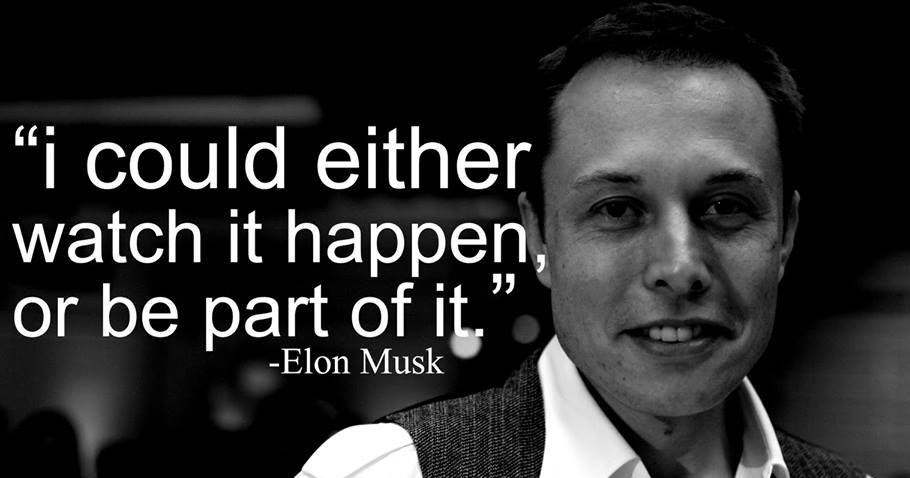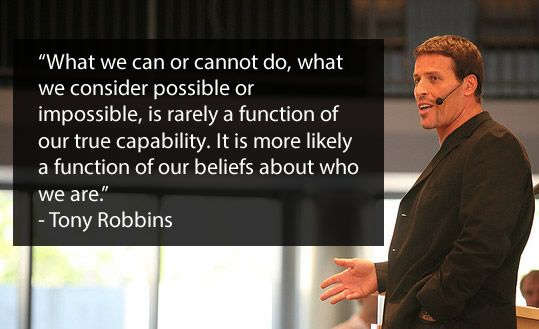What is Business: How can one be successful in business?

Business:
Business is a broad and multifaceted field that encompasses a wide range of activities related to the production, sale, and exchange of goods and services.
Here are some key topics and concepts within the realm of business:
Business Types and Structures: Businesses can take different forms, including sole proprietorships, partnerships, corporations, and limited liability companies (LLCs). Each structure has its own advantages and disadvantages in terms of liability, taxation, and management.
Business Functions: Businesses typically have several functional areas, including marketing, finance, operations, human resources, and more. These functions work together to ensure the smooth operation and growth of the business.
Entrepreneurship: Entrepreneurship involves the process of starting and managing a new business venture. Entrepreneurs identify opportunities, develop innovative ideas, secure funding, and navigate the challenges of building a successful business.
Business Planning: Creating a well-thought-out business plan is essential for guiding the direction of a new or existing business. A business plan outlines the company’s goals, strategies, target market, competitive analysis, financial projections, and more.
Marketing and Sales: Marketing encompasses activities aimed at promoting products or services and attracting customers. Sales involve the process of converting potential leads into paying customers.
Finance and Accounting: Finance involves managing the financial resources of a business, including budgeting, financial analysis, and capital allocation. Accounting tracks and reports the financial transactions of the business, ensuring accurate record-keeping and compliance with financial regulations.
Operations and Supply Chain Management: Operations management focuses on efficiently producing and delivering products or services. Supply chain management involves coordinating the flow of materials, information, and services from suppliers to customers.
Corporate Social Responsibility (CSR): Many businesses are increasingly focusing on CSR, which involves integrating social, environmental, and ethical considerations into their operations and decision-making processes.
E-Commerce and Online Business: The rise of the internet has led to the growth of e-commerce and online businesses, enabling companies to reach customers globally through digital platforms.
International Business: International business involves conducting trade and business activities across borders, dealing with issues such as international trade regulations, cultural differences, and currency exchange.
Innovation and Technology: Businesses often strive to innovate by developing new products, services, or processes. Technological advancements can significantly impact business operations and competitive strategies.
Management and Leadership: Effective management and leadership are crucial for guiding teams, making strategic decisions, and achieving business goals.

How can one be successful in business?
Achieving success in business is a multifaceted endeavor that involves a combination of strategic planning, hard work, adaptability, and effective execution. While there is no one-size-fits-all formula for success, there are certain principles and strategies that can increase your chances of achieving your business goals. Here are some key steps and principles to consider:
1. Clear Vision and Goals: Start by defining a clear vision for your business and setting specific, measurable, achievable, relevant, and time-bound (SMART) goals. A strong sense of purpose and direction will guide your decisions and actions.
2. Market Research and Understanding: Conduct thorough market research to understand your target audience, industry trends, and competitors. This knowledge will help you identify opportunities, address challenges, and tailor your offerings to meet customer needs.
3. Value Proposition: Develop a compelling value proposition that clearly communicates the unique benefits and value your products or services provide to customers. Differentiating yourself from competitors is crucial for attracting and retaining customers.
4. Business Plan: Create a comprehensive business plan that outlines your strategies, objectives, target market, marketing and sales approach, financial projections, and operational details. A well-structured plan will serve as a roadmap for your business’s growth.
5. Execution and Adaptability: Successful businesses execute their plans effectively and remain adaptable in the face of changing circumstances. Be prepared to pivot, adjust strategies, and embrace innovation as needed.
6. Quality and Customer Focus: Prioritize delivering high-quality products or services that meet or exceed customer expectations. Exceptional customer service and a customer-centric approach can lead to repeat business and positive word-of-mouth.

7. Networking and Relationships: Build a strong network of contacts within your industry and related fields. Networking can open doors to partnerships, collaborations, mentorship, and potential customers.
8. Financial Management: Maintain sound financial practices, including budgeting, cash flow management, and prudent investment. Understand your financial metrics and regularly review your financial performance.
9. Leadership and Team Building: As your business grows, effective leadership becomes crucial. Hire and develop a skilled and motivated team that shares your vision and values. Cultivate a positive work culture that encourages creativity, productivity, and collaboration.
10. Continuous Learning: Stay updated on industry trends, technological advancements, and best practices. Continuous learning and self-improvement can help you make informed decisions and stay competitive.
11. Risk Management: Identify potential risks and develop strategies to mitigate them. While taking calculated risks is part of business, it is important to manage and minimize potential negative impacts.
12. Persistence and Resilience: Business success often involves facing challenges and setbacks. Maintain a resilient mindset, learn from failures, and persevere through difficulties.
13. Ethical Behavior: Operate your business with integrity and ethical principles. Building a reputation for trustworthiness and ethical behavior can enhance your brand and foster long-term relationships.
14. Innovation and Adaptation: Embrace innovation and seek opportunities for improvement and growth. Monitor industry trends and be open to adopting new technologies and approaches.
Remember that success in business is a journey, and there will be difficulties along the way. It is important to stay focused, stay adaptable, and stay committed to your goals. Additionally, seeking advice and learning from experienced mentors or business advisors can provide valuable insights and guidance as you navigate the challenges and opportunities that come your way.
Famous Entrepreneurs about Business:
Elon Musk:
Elon Musk is a prominent entrepreneur, engineer, and inventor known for his role in founding and leading several high-profile technology companies. He was born on June 28, 1971, in Pretoria, South Africa. Musk is often associated with his ambitious vision for the future, including space exploration, electric vehicles, and renewable energy.
Resilience and Perseverance: Musk has faced numerous setbacks and challenges throughout his career, but he emphasizes the importance of resilience and determination. He believes that perseverance in the face of adversity is a key factor in achieving success.
Efficiency and Cost Management: Musk is known for his focus on efficiency and cost management. He believes that reducing waste and streamlining processes can lead to more competitive and sustainable businesses.

Focus on Sustainability: Musk is passionate about addressing environmental challenges through sustainable technologies. He believes in the importance of transitioning to clean energy sources and has actively promoted the adoption of electric vehicles and renewable energy solutions.
Problem Solving: Musk has a reputation for identifying complex problems and developing innovative solutions to address them. He encourages entrepreneurs to focus on solving significant challenges and to not be afraid of taking on seemingly impossible tasks.
Customer-Centric Approach: Musk believes in putting customers first and creating products that provide genuine value and meet their needs. He has emphasized that a business’s success is directly tied to the satisfaction of its customers.
Jeff Bezos:
Jeff Bezos, the founder of Amazon and one of the world’s wealthiest individuals, has shared numerous insights and principles about business throughout his career. I can offer you some general ideas and philosophies that Jeff Bezos has expressed regarding business:
Customer Obsession: Bezos is well-known for his focus on the customer. He believes that putting the customer at the center of everything a business does is key to long-term success. He has emphasized the importance of listening to customer feedback and continuously improving to meet their needs.
Long-Term Thinking: Bezos is a strong advocate for thinking and planning for the long term. He encourages businesses to make decisions that will benefit them over the course of years or decades, rather than focusing solely on short-term gains.

High Standards: Bezos has spoken about setting high standards for every aspect of a business. He believes in aiming for excellence and not compromising on quality, whether it’s in products, services, or operations.
Simplicity and Frugality: Bezos values simplicity and frugality in business operations. He believes that keeping things simple and being mindful of costs can lead to more efficient and effective processes.
Diverse Thinking: Bezos has emphasized the importance of diverse perspectives and thinking. He believes that diverse teams lead to better decision-making and more innovative solutions.
Tony Robbins:
Tony Robbins is a well-known motivational speaker, author, and life coach who has provided advice and insights on a wide range of topics, including business and entrepreneurship. I can offer you some general ideas and philosophies that Tony Robbins has shared about business:
Clarity of Purpose: Robbins encourages entrepreneurs to have a clear sense of purpose and a compelling “why” for their business. Understanding your purpose can provide motivation and direction as you navigate challenges.
Continuous Learning: Robbins is a proponent of continuous learning and self-improvement. He believes that investing in your own education and skill development is crucial for staying competitive and adaptable in the business world.
Effective Communication: Robbins highlights the significance of effective communication, both in interpersonal relationships and in business contexts. Communication skills are essential for building relationships, negotiating deals, and leading teams.

Embrace Challenges and Uncertainty: Robbins believes that challenges and uncertainty are inevitable in business. He encourages entrepreneurs to embrace adversity as an opportunity for growth and innovation.
Leadership and Team Building: Robbins emphasizes the role of leadership in business success. He believes that effective leaders inspire and empower their teams, fostering a culture of collaboration and high performance.






This is your helpful opinion for me